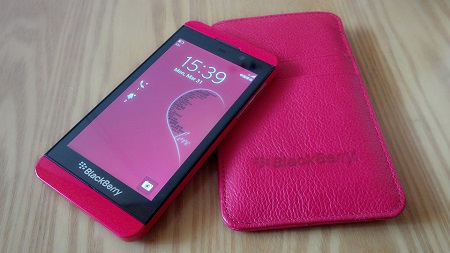BWild |
December 20, 2016
The company no longer manufactures its own smartphones but it is selling its name for branded devices.
TCL Communications entered into a BlackBerry licensing agreement to create and manufacture branded mobile devices. BlackBerry CEO John Chen recently said “BlackBerry is no longer just about the smartphone, but the smart in the phone.”
The goal is to continue the production of branded devices in the market without making them, themselves.
Chen assured customers that “when you see our logo it means security, from our class-leading enterprise software to devices secured by BlackBerry software.”
 This is not the first time BlackBerry has worked with TCL Communications. In fact, it released two different Android-based smartphones in a partnership with that company. The DTEK 50 and DTEK 60 are both devices resulting from collaborations between the two firms. TCL Communications also manufactures Alcatel-branded smartphones.
This is not the first time BlackBerry has worked with TCL Communications. In fact, it released two different Android-based smartphones in a partnership with that company. The DTEK 50 and DTEK 60 are both devices resulting from collaborations between the two firms. TCL Communications also manufactures Alcatel-branded smartphones.
The long-term BlackBerry licensing agreement is only the latest in that company’s turnaround strategy.
The partnership is a way for BlackBerry to place some distance between itself and handset manufacturing. The company can turn its focus toward growth as a security software and services company. As a part of this agreement TCL Communications will not only design, manufacture and sell BlackBerry-branded devices. It will also provide customer support for the products they sell.
BlackBerry COO and general manager of mobility solutions, Ralph Pini, said this partnership with TCL Communication is a core move in their strategy. It lets the company put “the ‘smart in the phone’ by providing state-of-the-art security and device software on a platform that mobile users prefer and are comfortable with.”
According to recent media reports, the DTEK 70 will be the next smartphone launched with the BlackBerry licensing brand agreement. This mobile device will be based on Android – as have been the last few models – and will have a fingerprint sensor. That feature will be uniquely positioned in the spacebar of the distinctive physical keyboard. It will have a 2.0 GHz Qualcomm processor, 3GB of RAM, 32GB of internal storage and a 4.5 inch display. The rear-facing camera will be 18 megapixels and the front-facing camera will be 8 megapixels.
CEO John Chen did everything he could think of to keep them going, but has finally admitted defeat.
BlackBerry smartphones were once the “it” devices. People loved them so much they were called “crackberries.” Where we see iPhones and Samsung Galaxy phones today, the Canadian handset maker once held a tremendous segment of the market.
Since then, BlackBerry fell from its high throne and has been plummeting for years.
Industry experts have been predicting the demise of BlackBerry smartphones for quite some time. At the same time, the struggling company was determined to keep trying, particularly when John Chen took over as CEO. Chen was quoted repeatedly saying that the brand would not give up on hardware.
 In a dramatic turnaround attempt, BlackBerry released one mobile phone after the next. They launched the Passport, a unique square-shaped device, and several others. They even released mobile devices based on Google’s Android operating system instead of the company’s own proprietary OS.
In a dramatic turnaround attempt, BlackBerry released one mobile phone after the next. They launched the Passport, a unique square-shaped device, and several others. They even released mobile devices based on Google’s Android operating system instead of the company’s own proprietary OS.
BlackBerry smartphones will no longer be designed, ordered or sold following this fiscal year.
In a press release, Chen announced the end of the company’s 20 year effort in the mobile hardware marketplace. The company first started in mobile devices in 1996 when it was selling two-way pagers. “The company plans to end all internal hardware development and will outsource that function to partners,” said Chen.
This announcement was made closely on the heels of its quarterly revenue report. Investors clearly saw potential in BlackBerry’s intentions to give up smartphones. Despite the notable drop in quarterly revenue, the announcement of the cessation of its hardware production and sales caused shares to climb 3 percent in premarket trading.
The company also announced that BlackBerry smartphones will continue to exist in some markets. This will occur through a royalty-collecting licensing agreement through the PT BB Merah Putih joint venture. That project is led by PT Tiphone Mobile Indonesia Tbk, the biggest wireless carrier in Indonesia. It will produce BlackBerry branded mobile phones running on Android. The mobile devices will be distributed exclusively within Indonesia. At the moment, no other market will see the sale of devices under this brand.
 This is not the first time BlackBerry has worked with TCL Communications. In fact, it released two different Android-based smartphones in a partnership with that company. The DTEK 50 and DTEK 60 are both devices resulting from collaborations between the two firms. TCL Communications also manufactures Alcatel-branded smartphones.
This is not the first time BlackBerry has worked with TCL Communications. In fact, it released two different Android-based smartphones in a partnership with that company. The DTEK 50 and DTEK 60 are both devices resulting from collaborations between the two firms. TCL Communications also manufactures Alcatel-branded smartphones.
 In a dramatic turnaround attempt, BlackBerry released
In a dramatic turnaround attempt, BlackBerry released 